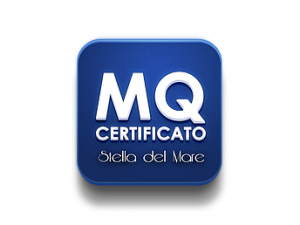This is a great way to discover new blog topics for your business, or to find relevant FAQs for the bottom of blogs or landing pages. While there are some free SEO programs, the most powerful tools come at a price. Forbes considered whether the fees charged for the tools were in line with the value offered. If you pull data often and want access to one of the biggest link databases in the industry, Moz Pro may be a better choice for your SEO tool suite. From solo entrepreneurs to enterprises, Google Analytics is a necessary tool for measuring your SEO performance when it comes to traffic and user behavior on your sites.
Search Engine Optimization
The best SEO tools can help you audit your site, measure results, and improve ROI from your SEO campaigns. For ecommerce businesses, the focus is on selling more products. If you’re just getting started with SEO tools, it’s best to first opt for a tool that’s simple and user-friendly.
ContentShake AI
If you’re able to meet the “People Also Ask” questions in Google SERPs, you’re more likely to rank. Type a word or phrase into the search bar to see how popular the keyword has been recently. This helps you make sure you’re not writing content about outdated topics.
- Use the Rank Check feature to see if you are ranking on the first page for the keywords in your list.
- For example, a keyword research tool might scan search engines to find what users are searching for and show volume, difficulty, and SERP features.
- You can monitor your competitors’ SEO strategies, including their keyword rankings, advertising strategies, and backlink profiles.
- While this is a plus, it also means that they may require a steep learning curve.
Additionally, the “Traffic Sources Comparison” feature provides an overview of digital marketing channels for multiple competitors simultaneously. For those new to SEO, ‘bounce rates’ refer to the percentage of visitors who visit a website and then leave without accessing any other pages on the same site. It also includes a Site Audit functionality that thoroughly analyzes your website’s health and identifies issues that must be addressed. While this is a plus, it also means that they may require a steep learning curve. Before you commit to an SEO tool, test it out to ensure it’s user-friendly. After all, a free software won’t help your business unless you and other members of your team find it quick and easy to set up and use.
Key features include accurate rank tracking globally and locally, comprehensive website audit, keyword suggestion tool, marketing planner and social media management. With the right software, teams can improve search engine rankings and analyze website performance. But finding the right free SEO tools can be a challenge, especially with so many options available. After testing RankIQ, we concluded that it’s an effective tool for bloggers and smaller companies looking to improve their search engine ranking. SEO Anomaly It offers a user-friendly interface and AI-driven insights that can be useful for those new to SEO or who have limited time. However, larger enterprises or experienced SEO professionals may require a more comprehensive and integrated approach that RankIQ may not be able to provide.
Rich Results Test checks whether your pages support structured data for enhanced SERP display. Google Lighthouse is an auditing tool that analyzes site performance, accessibility, SEO, and more. Originally launched as a free keyword tool, Ubersuggest has evolved into a full SEO toolkit.
Web Analytics
It’s a practical alternative to custom-coded solutions and works well for businesses that want to grow organic traffic through scalable page creation. This tool is ideal for creators focused specifically on YouTube, not those looking for broader website SEO features. But if video visibility is your goal, TubeBuddy is a straightforward, budget-friendly choice that gets the job done well. Once you know what you need, you can then search for software that helps you accomplish your goals.



 Come sempre in anticipo sulla normativa,
Come sempre in anticipo sulla normativa, 
 Le nuove proposte immobiliari di
Le nuove proposte immobiliari di 
